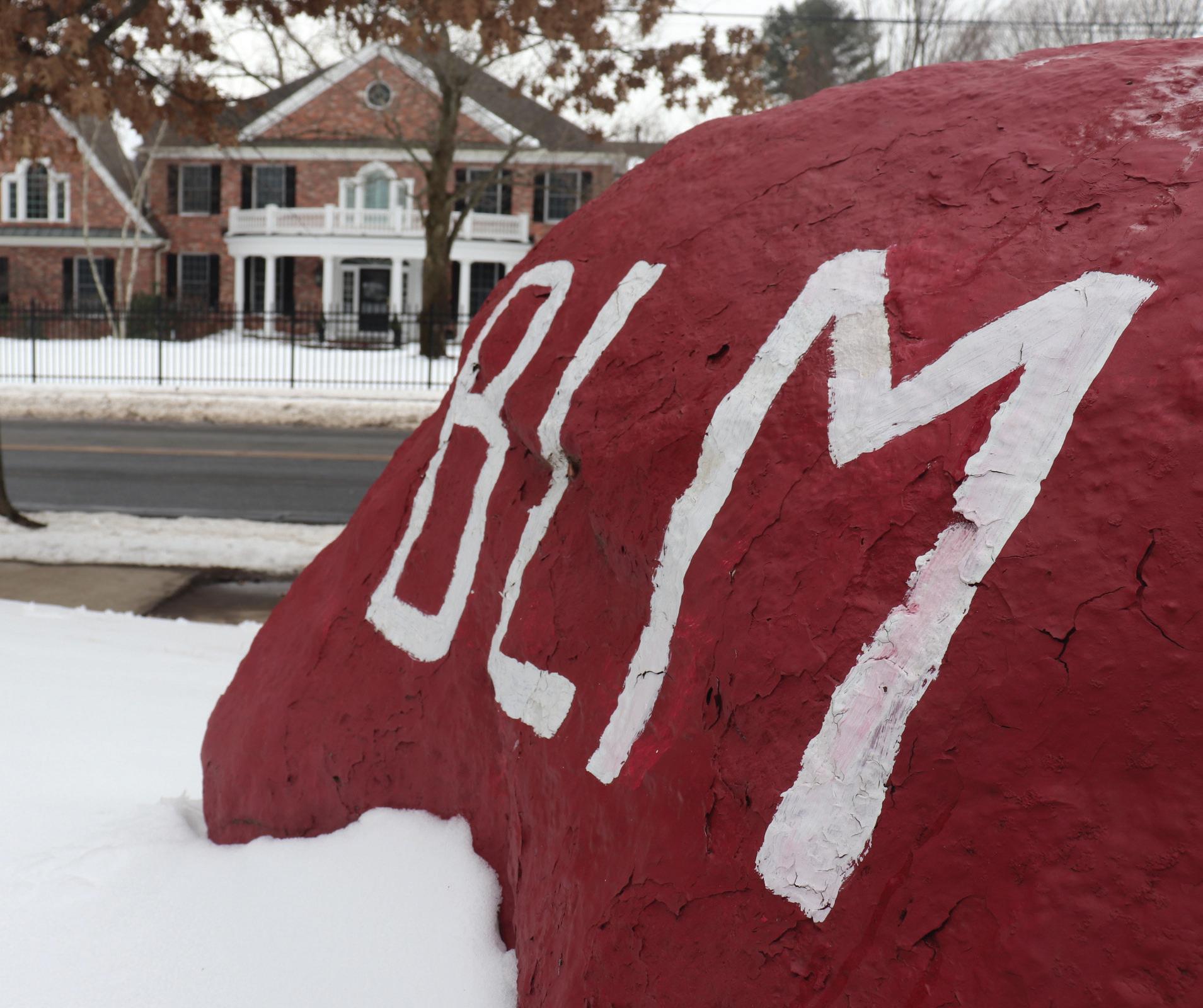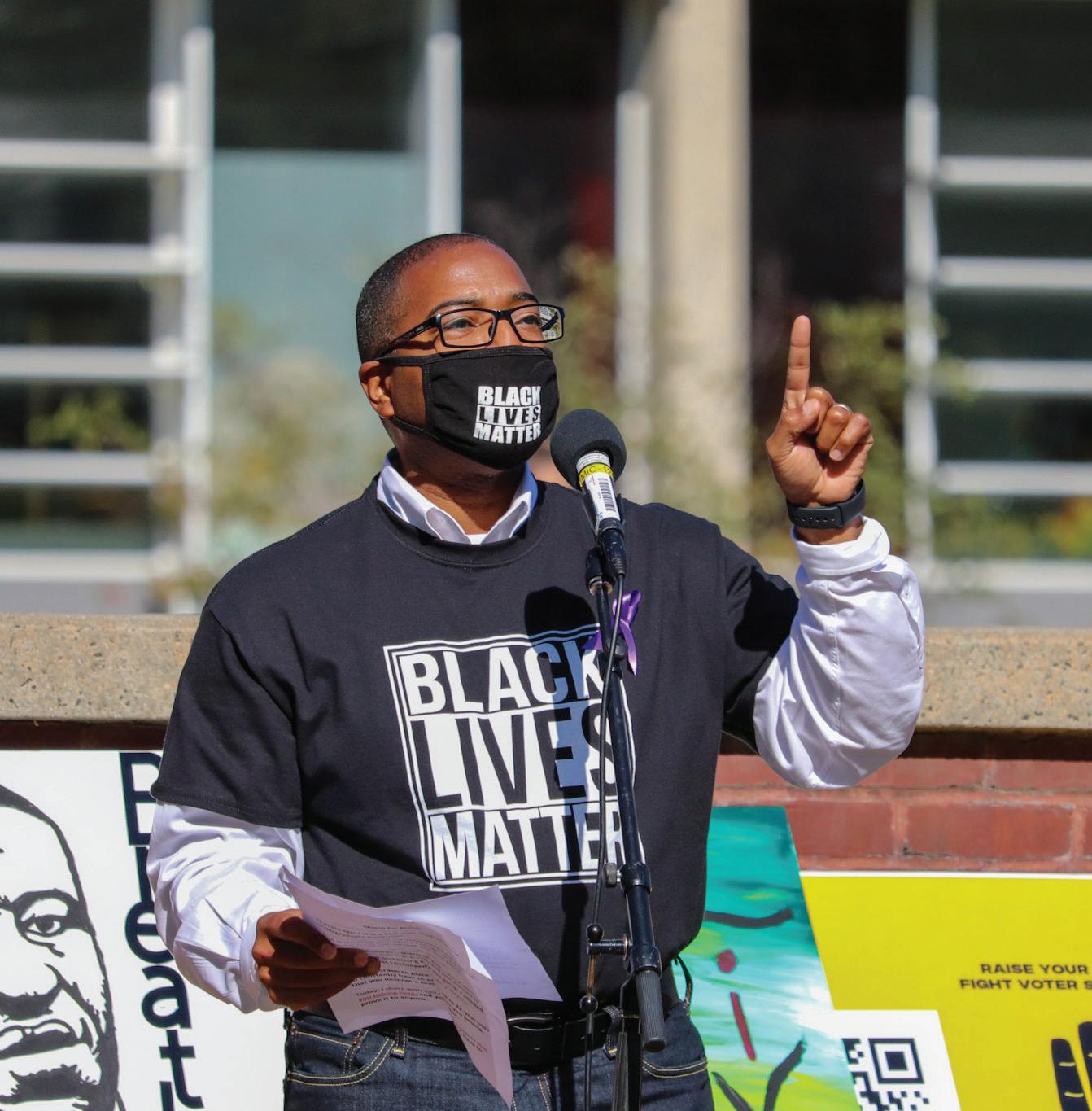
4 minute read
Black History Month and beyond
Black Lives Matter beyond February
Black history will be celebrated throughout the calendar’s shortest month. It is vitally important to continue to acknowledge and appreciate #BLM year-round.
Advertisement
___ By Collin Atwood ___ @collinatwood17
After George Zimmerman was acquitted of all charges for fatally shooting 17-year-old Trayvon Martin in 2012, an uproar sparked throughout the country. The death of Martin, who was unarmed, sparked a viral Twitter hashtag and a widely known organization now recognized as Black Lives Matter (BLM).
The movement was started by Alicia Garza, Patrisse Cullors and Opal Tometi in 2013. The movement and hashtag made headway in 2015, ranking at No. 8 on Twitter’s Top-10 News Hashtags list.
Springfield College senior Jennifer Charlera was supportive of the organization’s message when she first heard about BLM in 2014.
“I was all for it,” she
A Black Lives Matter rock painted by Springfield College students. (Photo by Collin Atwood/ The Student)
said, “I felt empowered and I just like the message it was trying to portray.”
BLM’s mission of fighting for the rights of people of color lives through Charlera at Springfield as she currently serves as the Secretary for the Black Student Union (BSU) and the Vice President of the Student Society for Bridging Diversity (SSBD).
By August of 2017, #BlackLivesMatter was used over 41 million times. The support for this movement kept rising and spiked following the acts of injustice that occurred in 2020. The deaths of George Floyd, Breonna Taylor and Ahmaud Arbery - among others - increased the gap between support and opposition of Black Lives Matter.
According to a study done by Civiqs in June of 2019, 41% of registered voters supported BLM and 34% did not. A year later, weeks after the killing of Floyd, that gap was at its peak with 52% of voters supporting and 29% opposing.
The use of the hashtag also peaked in the weeks after Floyd was forcefully choked to the point where he could no longer breathe. According to Pew Research Center, #BlackLivesMatter was used around 3.7 million times per day from May 26 to June 7. The hashtag
set a record on May 28 when it was used 8.8 million times.
That summer was the pinnacle of the BLM movement. Not only did tweets flood the phones of millions, but protestors all across the country made sure that their message was heard. A poll done by the Kaiser Family Foundation revealed that 26 million people protested in America from June 8-14.
Unfortunately, Black Lives Matter has not reached that level of momentum ever since even though the organization’s mission to fight for “Freedom, Liberation and Justice” may be needed now more than ever.
“People are really excited about it, especially after something has occurred that devastated the community, and then it dies out and you don’t hear about it anymore,” said Dr. Mark Flowers, a professor at Springfield College.
This is Dr. Flowers’ second semester at Springfield College and he teaches African American Religion. His claim about movements being less heard about after its initial surge is correct.
Once the summer of 2020 ended, so did the uprise of supporters. As of Jan. 31, 2022 the gap between supporters (44%) and opposers (43%) is slim. Just because there isn’t a tragedy going viral on every social media platform like the ones that did in 2020, doesn’t mean the mission of BLM is any less significant.
“I think (BLM) is extremely important especially since what’s going on right now with society…a lot of Black people are suffering,” Charlera said.
Charlera, an English and secondary education major, believes in educating today’s youth to be aware of the Black Lives Matter movement and other social justice issues in our country. During her time as a student-teacher she took that belief into her own hands.
“I did a whole social justice lesson about BLM and women’s rights and I thought it was important to tell the students, especially the next generation or our generation, to keep pushing the movement,” Charlera said.
Charlera’s mission statement for teaching is to “teach for Black lives,” and that is exactly what she plans to do with her future as an educator.
A common message from Black Lives Matter that gets misconstrued is that supporters believe #BlackLivesMatter means that other lives don’t matter as much. Hence the start up of #AllLivesMatter.
Dr. Flowers, who has been a part of rallies that fought for Black rights before the movement became an organization in 2013, believes that the most important message coming from BLM is that it doesn’t mean Black lives matter more than others.
“It’s not saying that other lives don’t matter, because common sense would dictate that all lives matter. It’s just that that common sense has stopped when it comes to Black people,” Dr Flowers said.
For all lives to matter, first Black lives have to matter. It is important for people to learn the true meaning of the movement and why its mission still holds relevance today.
“I just think it’s important, especially today, Black History Month, people should definitely go educate themselves and be a part of the movement,” Charlera said.
- Jennifer Charlera -

Dr. Calvin Hill speaking at Springfield College’s March for Action in October 2020. (Photo by Joe Arruda/The Student)




